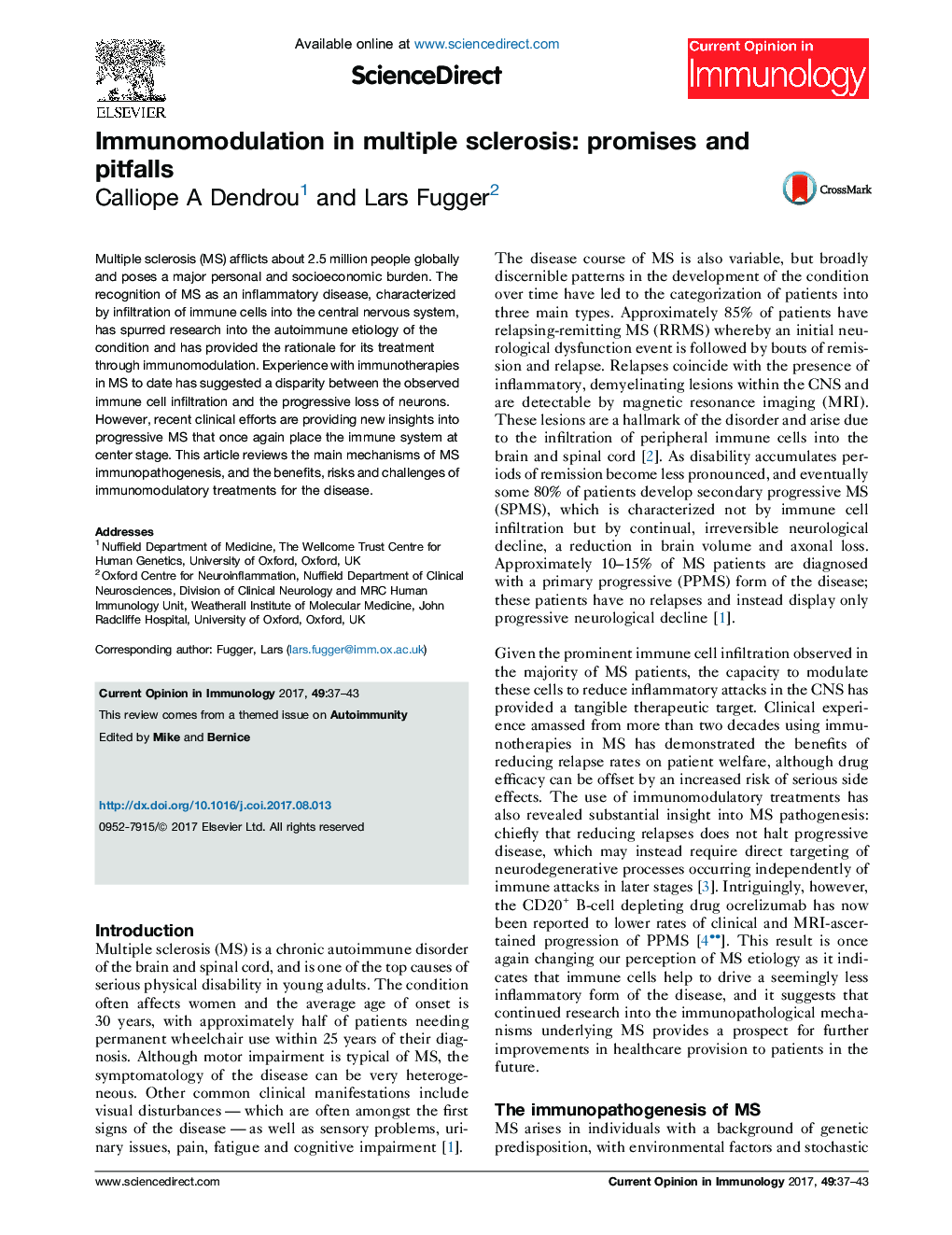| Article ID | Journal | Published Year | Pages | File Type |
|---|---|---|---|---|
| 5665732 | Current Opinion in Immunology | 2017 | 7 Pages |
â¢Multiple sclerosis (MS) is an autoimmune disorder of the brain and spinal cord.â¢Immunomodulatory drugs have been used for over two decades to treat relapsing MS.â¢Their use suggests that immunomodulation cannot halt disease progression.â¢A B-cell-depleting drug has now shown efficacy for treating primary progressive MS.â¢Better understanding MS immunopathology may improve patient healthcare provision.
Multiple sclerosis (MS) afflicts about 2.5 million people globally and poses a major personal and socioeconomic burden. The recognition of MS as an inflammatory disease, characterized by infiltration of immune cells into the central nervous system, has spurred research into the autoimmune etiology of the condition and has provided the rationale for its treatment through immunomodulation. Experience with immunotherapies in MS to date has suggested a disparity between the observed immune cell infiltration and the progressive loss of neurons. However, recent clinical efforts are providing new insights into progressive MS that once again place the immune system at center stage. This article reviews the main mechanisms of MS immunopathogenesis, and the benefits, risks and challenges of immunomodulatory treatments for the disease.
